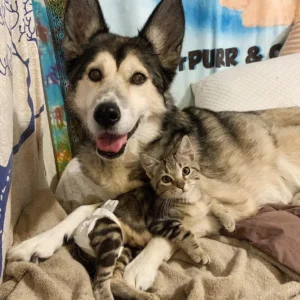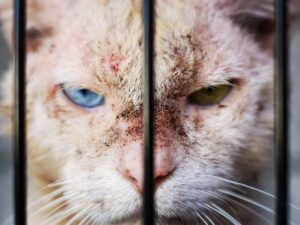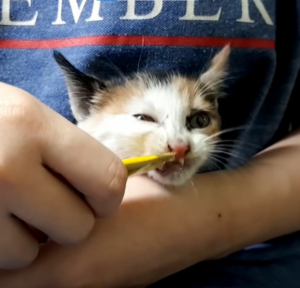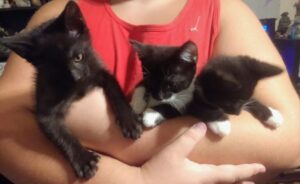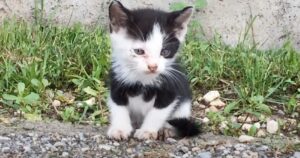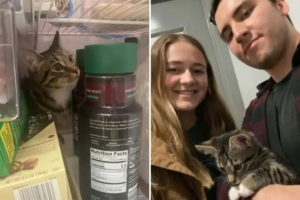Roche, the founder of TinyKittens, discovered a wild cat colony on a private property in British Columbia, Canada, in October. As a result, Roche and a few volunteers began catching the animals in order to spay, neuter, and treat them. They’d try to find them homes if any of them were friendly.
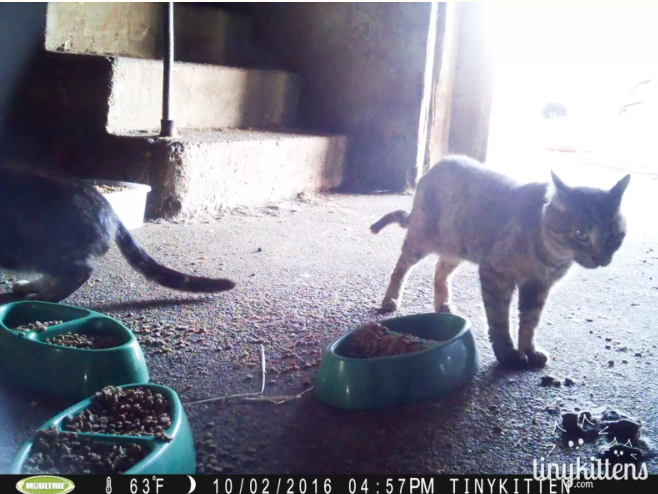
“Over the course of one weekend, we ended up taking in around 26 cats, including Mason,” Roche told The Dodo. “He was one of our unique animals since he had a large growth on the underside of his right paw. His tail had been damaged on several occasions. He was afflicted with a slew of illnesses. He required considerable dental work. He was a geriatric cat that had been without veterinary treatment for the majority of his life.”
Mason, on the other hand, was going to be difficult to cure.
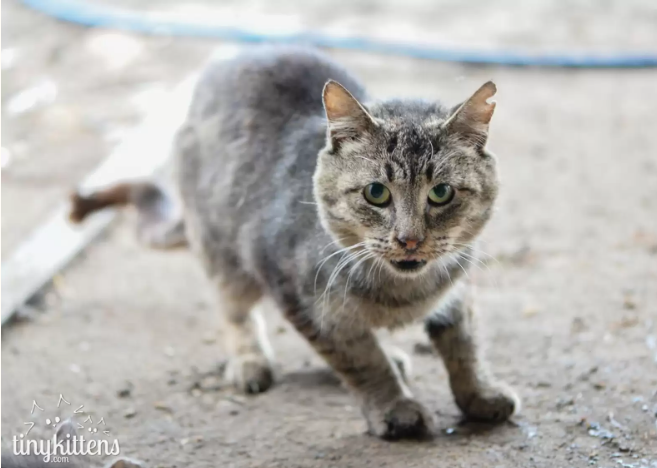
“He’s been wild his entire life,” Roche said, “so he’s never had any nice contact with humans.” “Essentially, he sees humans as predators.”
Roche intended to return Mason to his colony after providing him with the medical care he required, and just put food out for him each day. But then Roche discovered something that completely altered everything: Mason was urinating far more than he should have been.
“We did some blood tests and discovered he had significant renal illness,” Roche explained. “We reasoned, ‘We can’t return him since he won’t survive the winter in this condition.’ We had taken care of all of his other requirements, but his renal illness necessitates a particular diet and medication.”
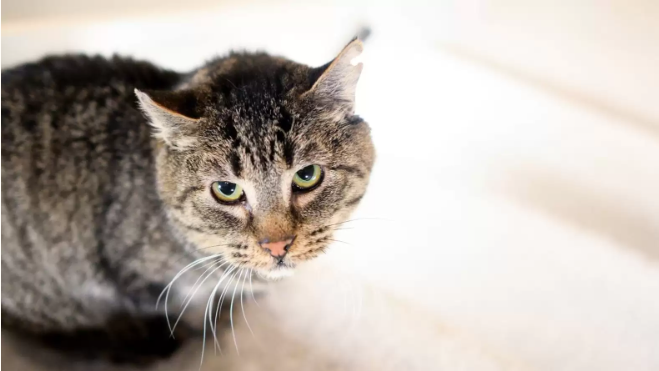
Mason was feared by the other TinyKittens volunteers, so Roche took him home to live with her.
“I didn’t want him to be any more stressed than he already was,” Roche said. “We’ve formed a relationship where he knows when I’m going to give him medicines, and he swats and smacks me a number of times, but he recovers quite fast.”
Mason became more at ease at Roche’s home after a short period of time.
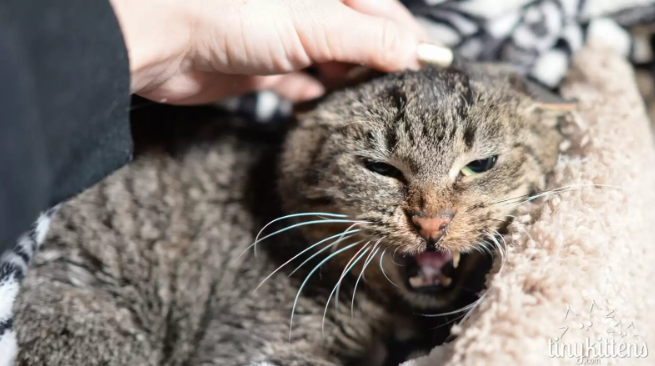
“I started noticing toys all over the place and cushions off the sofa as I came out of my room in the morning,” Roche said. “That’s an indication of a contented cat who spends the entire night playing and acting like a regular cat.”
Scrammy, Moo Shu, Florentine, Hatch, and Fabergé were among the five foster cats Roche took home. Roche wasn’t sure how Mason would respond to the kittens because he hadn’t been nice with her in the past, but she planned to introduce them slowly to see how he would react.
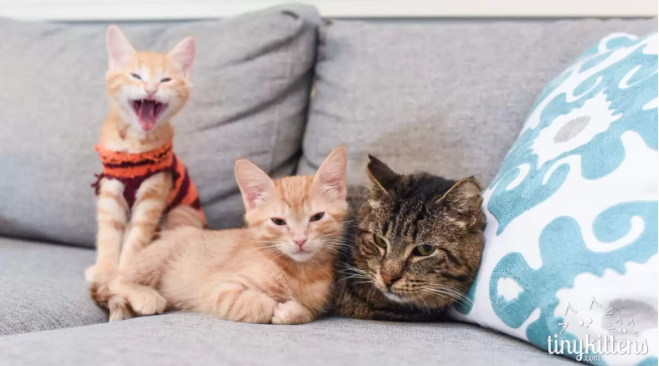
“I placed the kittens down in a tiny location beneath a chair that he enjoys, and they started crawling all over him and violating his personal space,” Roche explained. “I remained close by in case he became enraged – I expected him to hiss, snarl, or slink away.” But then one of the ginger kittens began licking Mason’s ear, and Mason leaned in and closed his eyes as if it were the most incredible thing he’d ever seen.”
Mason had never been so relaxed with Roche, Roche couldn’t believe it.

“His look was pure happiness, which was just incredible,” Roche added. “The only thing that seemed to be missing for him was touch with another live creature.” And, while he didn’t want it with me, he must have missed it among his own kind.”
She opted not to put Mason and the kittens together since they had distinct medical and dietary needs, but she began bringing the kittens to visit Mason every day.
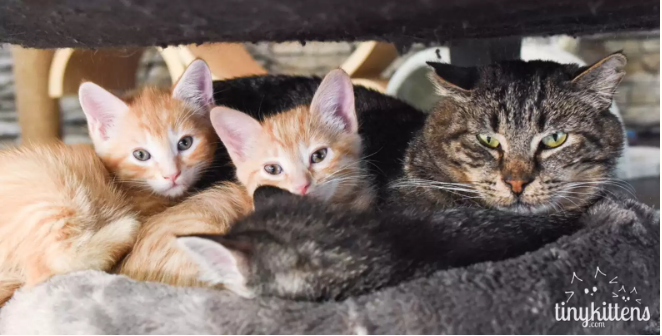
“He reminds me of Grandpa,” Roche remarked. “The kids come over and play and get away with all kinds of mischief.” He’d put his paw on them and simply hold them for a minute if they were being very irritating.”
“When they were there, he really came alive,” she continued. “He’d cuddle and play with them.” He’d walk up to them and crawl on top of them, pushing his way down to make room if they were all sleeping on one of the beds.”
